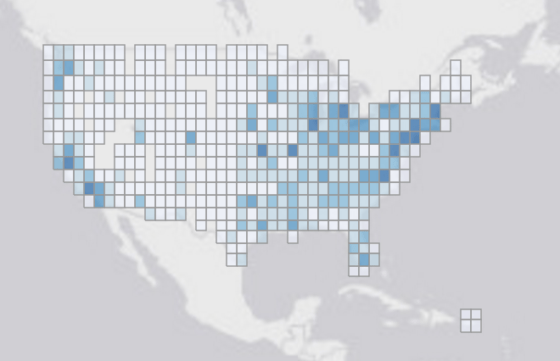In its first days in power, the Trump administration has already taken alarming steps to restrict public access to information. The White House imposed gags on EPA and USDA employees (though the latter was quickly rescinded) and limited communication from other federal agencies. The EPA's climate change page is expected to go dark soon.
The GOP clampdown on information and research is bigger than Trump. Congressional Republicans introduced a pair of bills last week to roll back Obama administration fair housing reforms, and buried in the "Local Zoning Protection Act" is a stipulation that seeks to curtail the production and distribution of data about racial segregation.

"The bills would also prohibit federal funds from being used for the HUD database containing geospatial information regarding community racial disparities and disparities in access to affordable housing," according to the National Low-Income Housing Coalition.
David King, a transportation and land use researcher at Arizona State University, thinks this attack on research is a preview of what's to come under Trump and the GOP Congress. We spoke over the phone about the implications of cutting off federal research and data collection, and why that would limit our understanding of how transportation and planning policies affect people. Here's our interview, lightly edited for length and clarity.
So Republicans have introduced a bill that would limit some housing data. How would that affect your work?
I study transport and land use. These are data that I’ve come across but they’re not particularly central to what I do. I view this as part of a broader attack on publicly available data, which is part of the backbone of social science in the U.S.
I will be surprised if the ACS [American Community Survey] survives the Trump administration.
The ACS was supposed to supply more timely data [between full 10-year Census reports]. With the Census you wouldn’t start getting the data till three or four years later. By that point it’s three or four years old and that’s the only data you have for the next decade.
The ACS is a much smaller sample but it’s ongoing.
What makes you think Republicans will try to eliminate the ACS?
They’ve been trying to for decades. [Editor's note: background here.]
The Census is required by the Constitution, but it’s just about counting people. You need to know how many people there are and you can allocate Congressional seats. Anything beyond that, many Republicans view as illegitimate.
What do the objections stem from? Is it about money?
It’s about privacy. They seem to be happy to spend money on things they like.
Within the last few years the GOP has launched a number of attacks on the ACS. The last time it was a hot-button issue was three years ago.
Part of the problem is the ACS isn’t working as well as we hoped. People aren’t responding to the same degree. The sample is turning out to be much smaller than expected. There’s issues with the ACS. To me that means they should fix it, not eliminate it.
The idea that we’d stop collecting data on housing -- these are the same attacks being made on the ACS, on climate science. The GOP has just been going against data for a long time.
Isn’t detailed Census data very useful to businesses for things like market research?
Corporations like Target have been coming out in support of it.
There’s many more data substitutes than there used to be. There’s so much data out there. Social media data, data from private firms.
So how would this affect your work as a university professor who studies transportation?
If we lose housing data, if we lose demographic data, if we lose ACS data, we won’t be able to evaluate the distribution of benefits associated with transit systems. There’s problems with the equitable distribution of transportation. We know that that’s a problem because we’re using these government data sets.
You’ll end up with people that are essentially the most vulnerable in society not being counted. There are still going to be lots of data about people using credit cards [wealthier people].
I noticed there are only Republican sponsors on these bills.
This is solely a GOP thing. I suspect you’re going to see a lot of these type of bills go through because Trump doesn’t care. That’s my opinion of the Trump administration. It’s on record that the GOP has been trying to kill this for decade. They control all levels of power and they can do this if they want.
This would be a perfect type of thing to try to sneak under the radar right now because most Americans aren’t going to care … until it’s too late. There’s only so much outrage that anybody can have.






